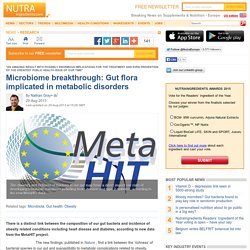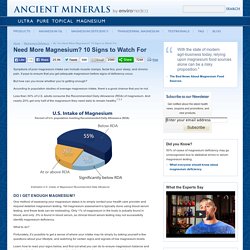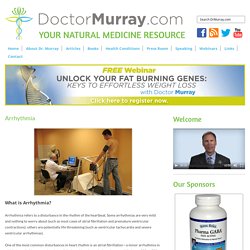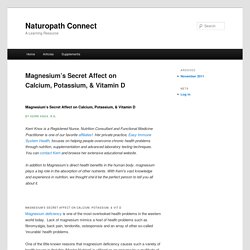

Don't Fall for the Cholesterol Myth - Revealing the Cholesterol Scam. Could you be falling for the cholesterol scam and not even know it?

The idea of cholesterol creating cardiac problems has caused obsessive cholesterol count blood testing for decades. Two other outcomes of the cholesterol myth was individuals obsessively avoiding fat in our diets, especially saturated fats – and ultimately turning to dangerous cholesterol-reducing drugs known as statin drugs. The food industry responded with low and no fat foods from milk to cottage cheese and more. Processed foods promoted their low or no fat contents as though they were the healthiest foods in the freezer. Healthy fats such as coconut oil and palm oil were spurned and replaced by very unhealthy trans-fat, processed and heated cooking oils. However, this myth of cholesterol dangers lurking in saturated fats waiting to clog your arteries and cause you to die of cardiac arrest is beginning to unravel.
Unraveling the Cholesterol Scam Dr. Dr. The truth is, cholesterol is vital for many functions. . (1) Microbiome breakthrough: Gut flora implicated in metabolic disorders. The new findings, published in Nature, find a link between the ‘richness’ of bacterial species in our gut and susceptibility to metabolic complications related to obesity.

Led by Professor Jeroen Raes from VIB, the Netherlands, the MetaHIT team have demonstrated that people with fewer bacterial species in their intestines are more likely to develop complications, including cardiovascular diseases and diabetes. Such flora, with decreased bacterial richness, appear to function entirely differently to the healthy varieties that have greater diversity, said the team.
"We were able to distinguish between two groups based on their intestinal flora: people with a large richness of bacterial species in their intestines and people with a few less bacterial species,” explained Raes. “A species-rich bacterial flora appeared to function differently compared to the poorer variety. It was surprising to see that obese and non-obese people were found in both groups. " Study details. Department of Pathology, The University of Hong Kong: Hereditary Gastrointestinal Cancer Genetic Diagnosis Laboratory.
Do You Need More Magnesium? 10 Signs to Watch For. Print Symptoms of poor magnesium intake can include muscle cramps, facial tics, poor sleep, and chronic pain.

It pays to ensure that you get adequate magnesium before signs of deficiency occur. But how can you know whether you’re getting enough? According to population studies of average magnesium intake, there’s a good chance that you’re not. Less than 30% of U.S. adults consume the Recommended Daily Allowance (RDA) of magnesium. Estimated U.S. Do I get enough magnesium? One method of assessing your magnesium status is to simply contact your health care provider and request detailed magnesium testing. What to do? Fortunately, it’s possible to get a sense of where your intake may lie simply by asking yourself a few questions about your lifestyle, and watching for certain signs and signals of low magnesium levels. Learn how to read your signs below, and find out what you can do to ensure magnesium balance and good health. 1.
Most dark colored sodas contain phosphates. 2. 3. 4. 5. 6. Causes, Symptoms & Natural Treatment For Arrhythmia. What is Arrhythmia?

Arrhythmia refers to a disturbance in the rhythm of the heartbeat. Some arrhythmias are very mild and nothing to worry about (such as most cases of atrial fibrillation and premature ventricular contractions); others are potentially life threatening (such as ventricular tachycardia and severe ventricular arrhythmias). One of the most common disturbances in heart rhythm is an atrial fibrillation—a minor arrhythmia in which the atria (the upper chambers of the heart) beat irregularly and very rapidly (up to 300 to 500 beats a minute).
An atrial fibrillation is a minor disturbance because the atrium’s job is simply to fill the ventricle (the lower chamber of the heart). However, chronic atrial fibrillation does carry with it a slightly increased risk for a stroke, as blood can pool in the atria and increase the likelihood of clot formation. Another minor rhythm disorder is premature ventricular contractures (PVCs). Magnesium’s Secret Affect on Calcium, Potassium, & Vitamin D. Kerri Knox is a Registered Nurse, Nutrition Consultant and Functional Medicine Practitioner is one of our favorite affiliates!

Her private practice, Easy Immune System Health, focuses on helping people overcome chronic health problems through nutrition, supplementation and advanced laboratory testing techniques. You can contact Kerri and browse her extensive educational website. In addition to Magnesium’s direct health benefits in the human body, magnesium plays a big role in the absorption of other nutrients.
With Kerri’s vast knowledge and experience in nutrition, we thought she’d be the perfect person to tell you all about it. Magnesium’s Secret Affect on Calcium, Potassium, & Vit D Magnesium deficiency is one of the most overlooked health problems in the western world today. Magnesium is such an important nutrient that taking it by itself, in many cases, actually raises blood levels of calcium, potassium and vitamin D.1.